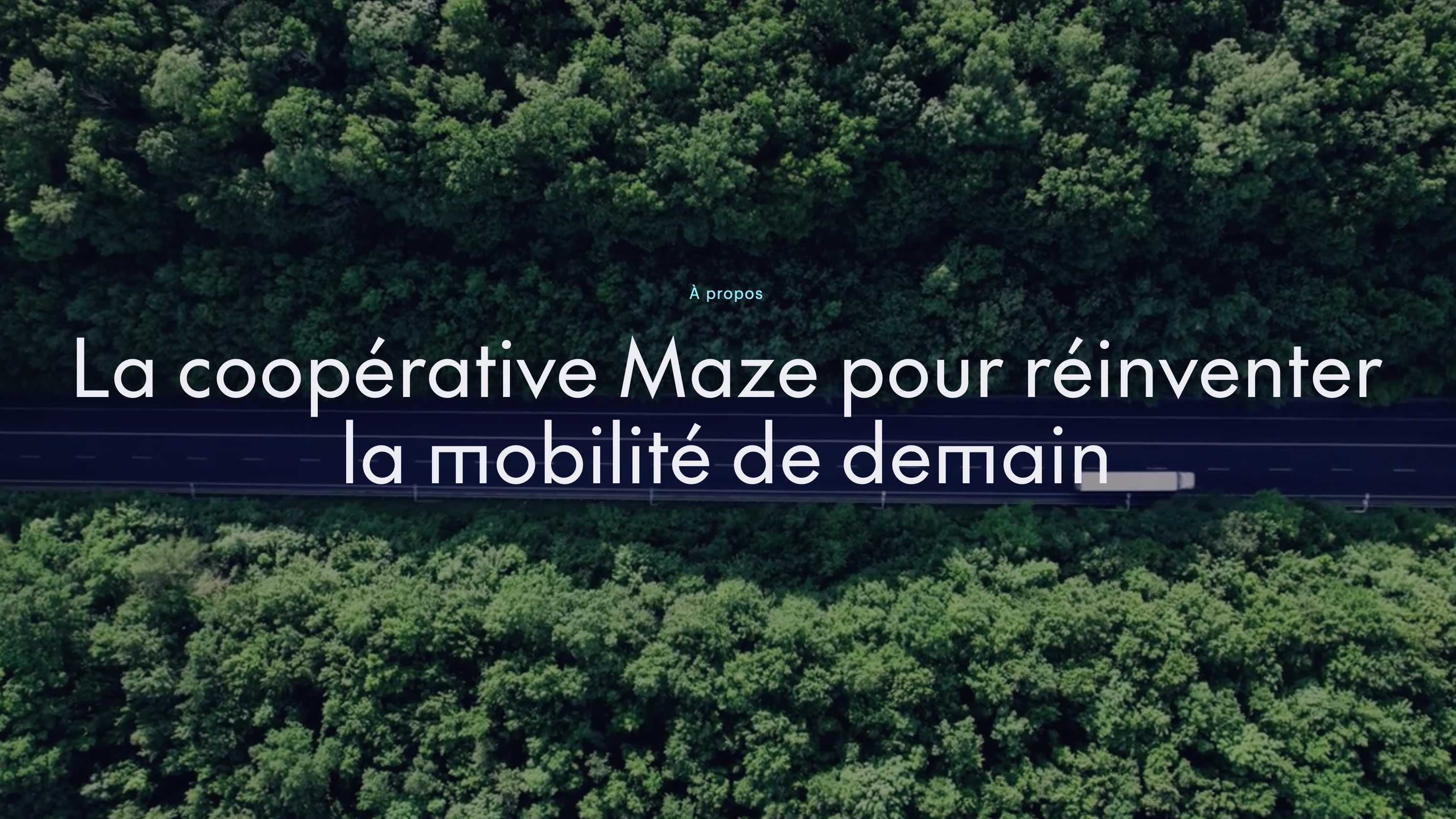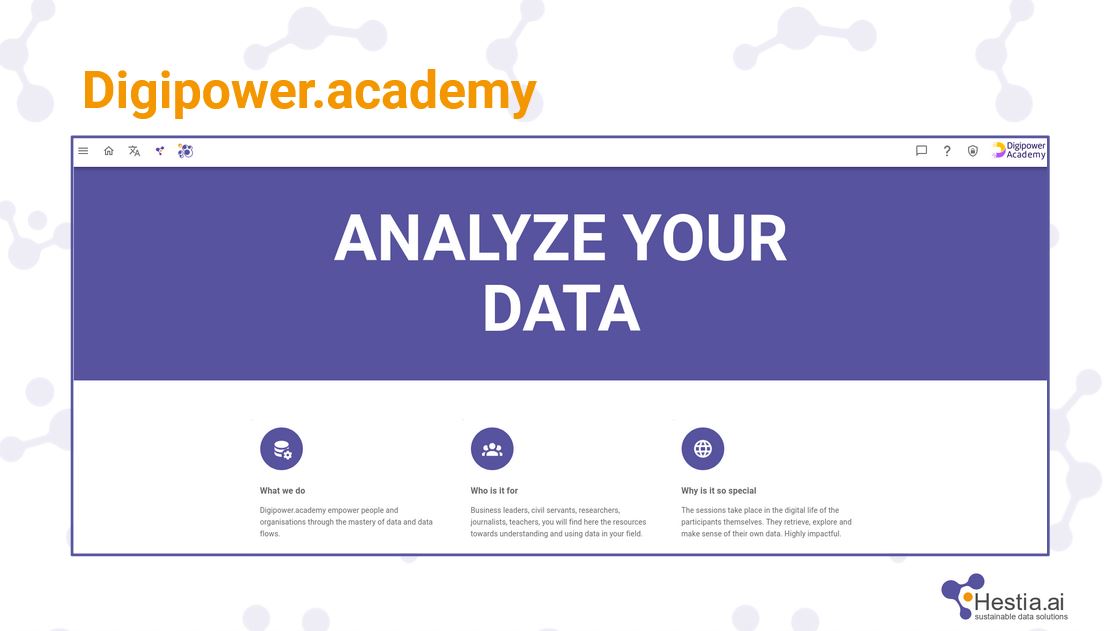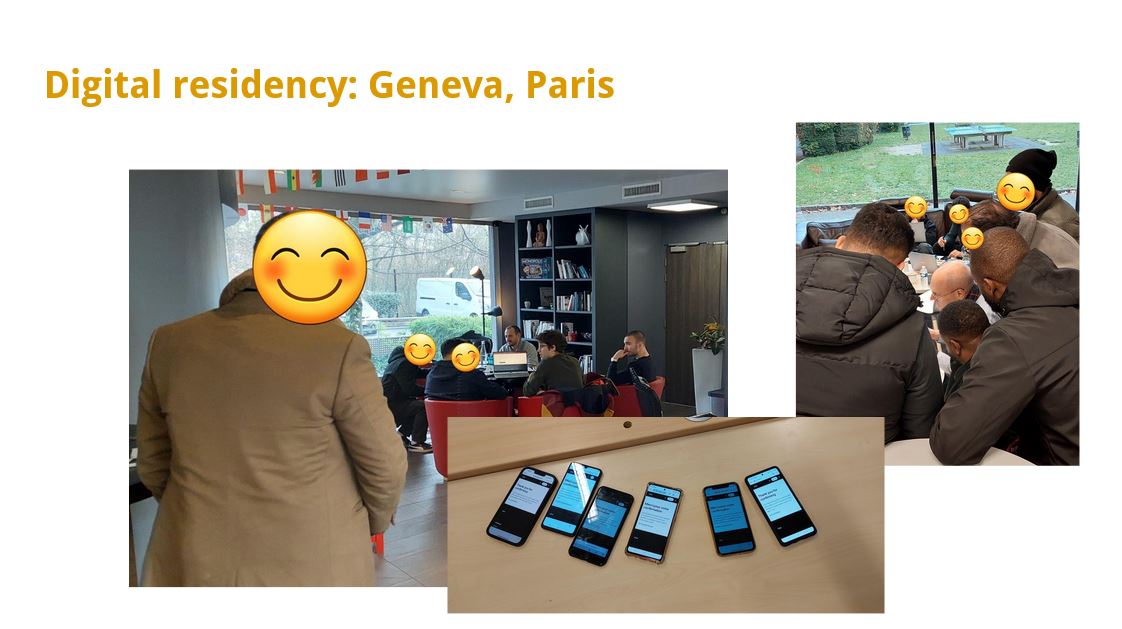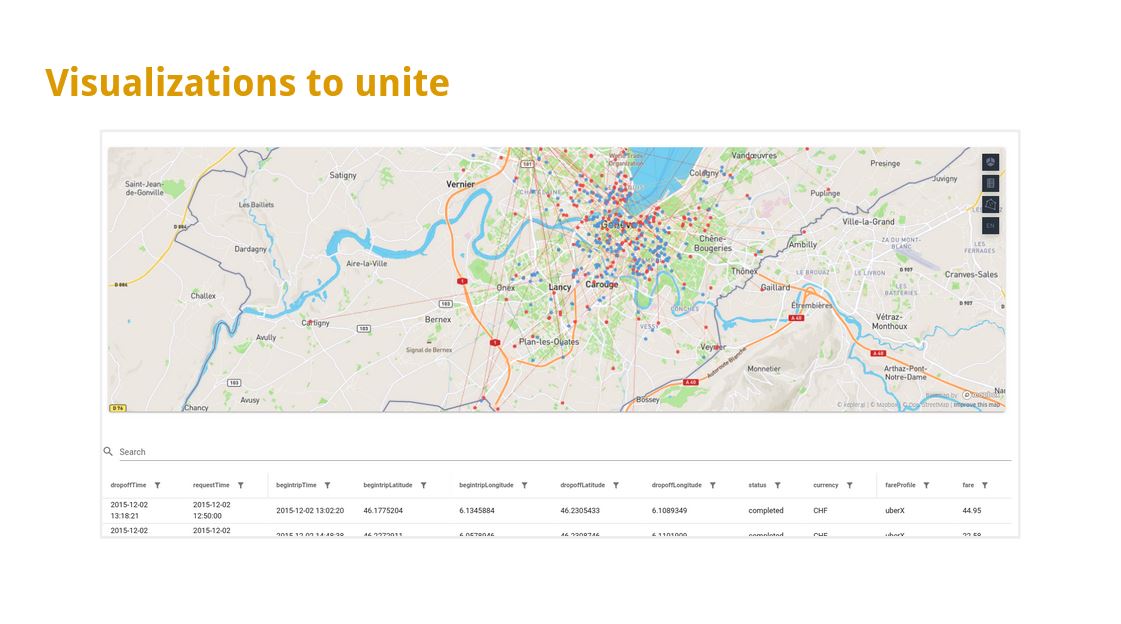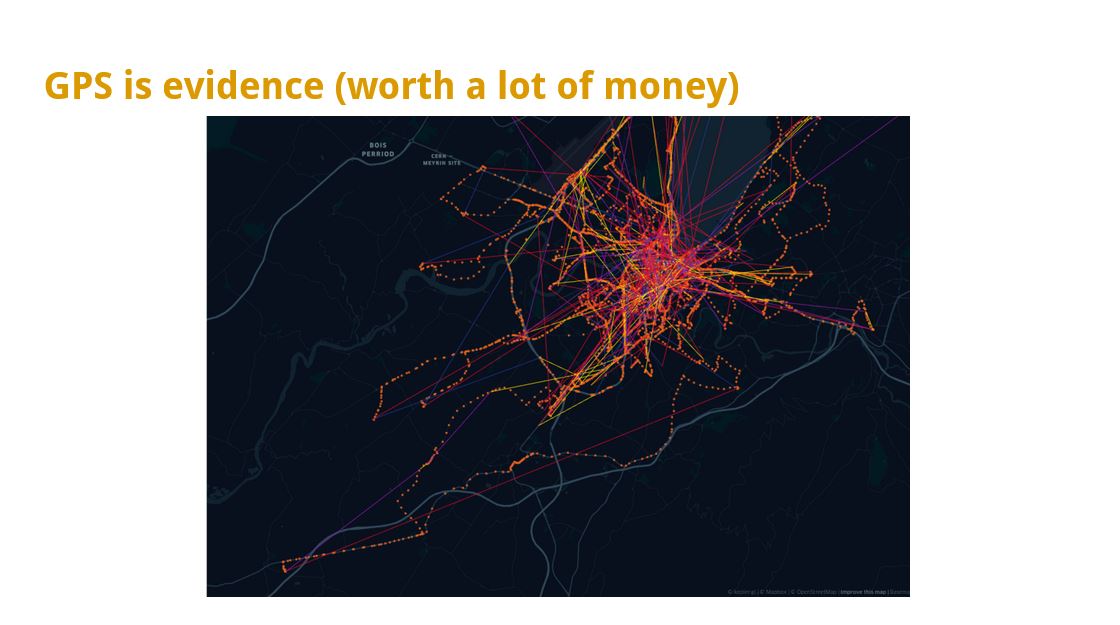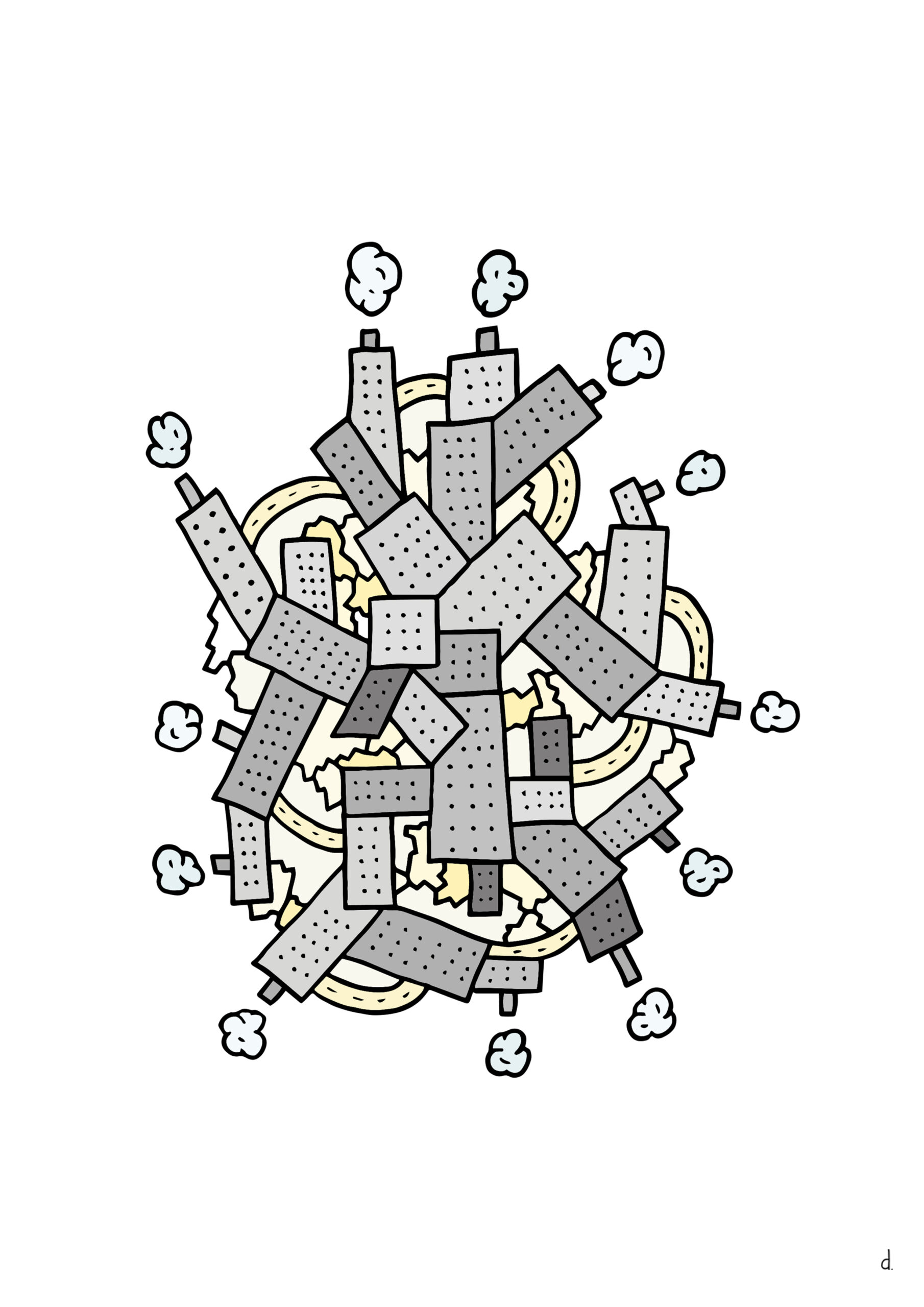Honorary Mention
Data governance model for a new French mobility service by gig workers
Scientific knowledge is produced about the working conditions of gig workers in Paris through the lenses of their personal data that is recovered with the aim of building a new data governance model for innovation. Based on a participatory methodology, drivers organised at the cooperative Maze recovered their personal data from Uber by making use of their data access rights and are seeking now to first analyse it with open access tools for reverse engineering Uber’s algorithmic management. Second, to create data commons for innovation.
Together with Jessica Pidoux, researcher at Sciences Po Paris, and David Décamps, illustrator at PersonalData.iO, citizen science research is undertaken to build a new mobility service for Paris thanks to the geolocation data recovered from Uber and collective experiences in the transportation field by means of a bottom-up governance: drivers decide together how to manage and repurpose data for talking control of algorithms and improving their profession.
Jury Statement
Citizens have the right to know about personal data that is collected by the company they work for (under EU GDPR rights). Yet most workers find it very difficult to receive meaningful information from the data. In this project, Uber drivers tracked their own driving data, analysed it and this way eventually made sense of the Uber algorithm. They concluded that the algorithm calculates their wages inaccurately. Through the acquired evidence citizens could fight legally for higher wages. This citizen science project on data rights emphasises that workers could make use of transparent and accessible data to gain power.
European Union Prize for Citizen Science Jury 2023 (Kat Austen, Lewis Hou, Pedro Russo, Andrea Sforzi, Stefanie Wuschitz). View full Statement here.
Credits
The project would like to acknowledge worldwide platform drivers working for a collective change, and Maze’s associates, PersonalData.iO’s team and Hestia.ai’s team, along with founder Paul-Olivier Dehaye, for technological solutions open and free at digipower.academy.
Biographies

PersonalData.IO
PersonalData.IO (FR), founded by Paul-Olivier Dehaye, started to collaborate with Brahim Ben Ali in 2019. Brahim is a professional driver, founder and president of the cooperative Maze. In charge of organising the drivers as a community and their collective actions in Paris, France, and EU around data, he is also involved in policy making in his locality and in the European Commission consultations (for the gig workers’ directive and the Uber files in France).
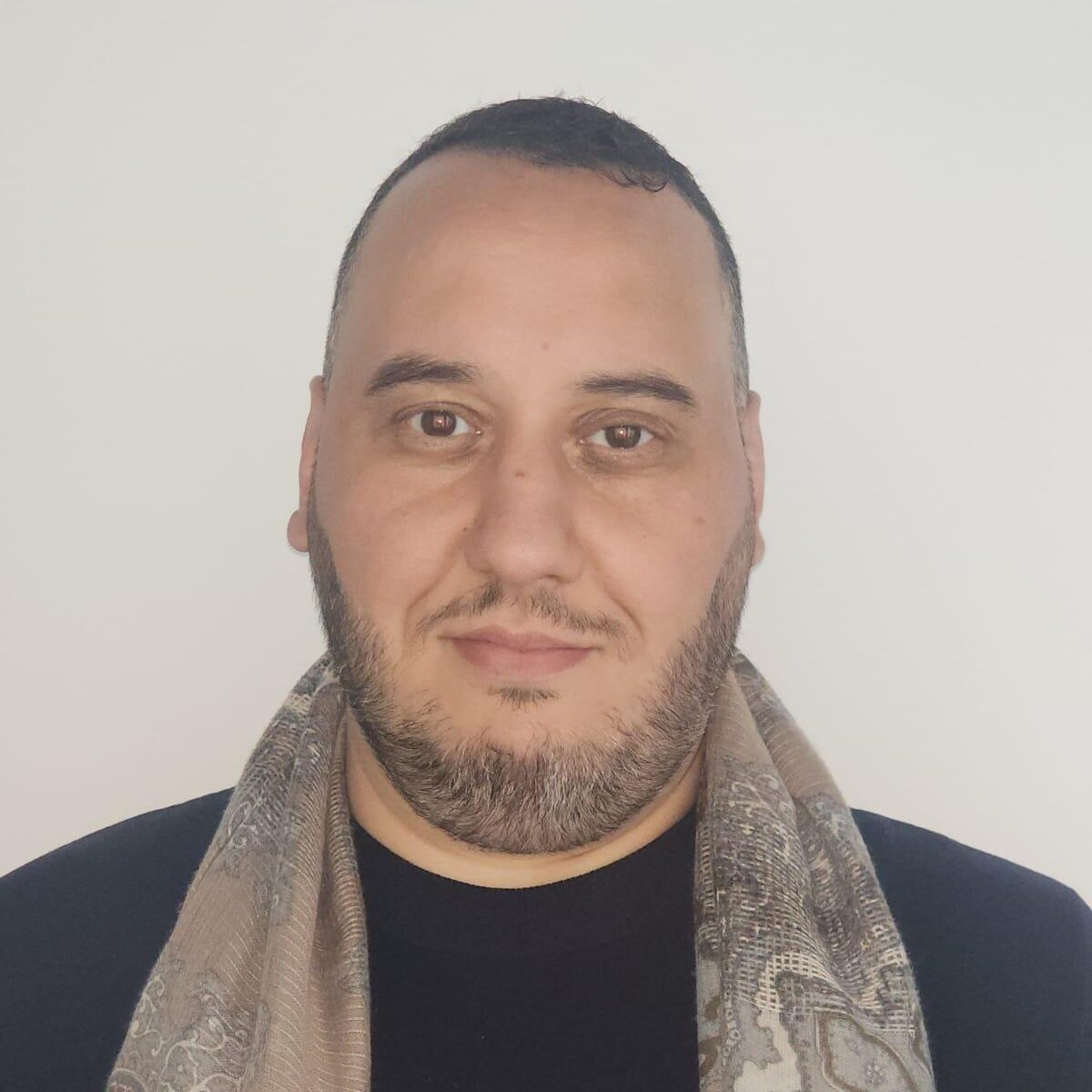
Brahim Ben Ali
Brahim Ben Ali (FR) is the National Representative of the VTC (National Union INV), Founder and General President of the maze cooperative, independent driver and consultant at European level on the work of platforms, President of the Human Dignity Association and member of the global alliance IAATW. Since 2021, Brahim proposes a new mobility service with the city of Saint Denis. He also started to collaborate with Jessica Pidoux (Director of PersonalData.IO) and David Décamps (artist and digital mediator at PersonalData.IO). They support Maze in research and data governance. From the encounter of these interdisciplinary experts (driver, mathematician, sociologist, artist) was born this project: A societal project, eminently crucial for the future of driving profession and gig work, wishing to lay the foundations for a new era in the use of data for the common good.

David Décamps
David Décamps (FR) began photography in 2013 while living in Palisades, a village located a few miles north of New York City (USA). Self-taught, and adept at street photography, he stands out for his deeply human and resolutely optimistic vision of art. With kindness and finesse, his works reveal the forgotten details of life, thus restoring a sense of wonder that is sometimes lost in a daily life that leaves little room for attention. Also illustrator, Deydai is the nickname of the boy who lives in a corner of his brain. Deydai likes to illustrate his words. Often in black and white, sometimes tinted with colors, his illustrations mix the popular expression „a drawing is better than a long speech“.

Jessica Pidoux
Jessica Pidoux (FR) is a digital sociologist at Sciences Po’s Centre for European Studies and Comparative Politics, in Paris. She conducts research in matching algorithmic systems, personal data protection and citizen science for improving development processes in app-innovation. She has revealed algorithmic discrimination patterns in the dating app Tinder. She is currently project manager of COESO’s module Cooperation Analytics for citizen social science projects (EU Horizon 2020), which gives her knowledge in digital policies across Europe. She is also Director of PersonalData.IO where she develops protocols of legal, ethical and technical support to advocate for better digital rights with communities of interest, for achieving their own goals of social transformation in the data economy. She contributed with her research to the film production of Ariane Loze’s „cold loves“ about recommendation systems for raising awareness about the impact of the data economy.

Sciences Po Centre for European Studies and Comparative Politics in Paris
Sciences Po Centre for European Studies and Comparative Politics in Paris (FR) is headed by Florence Faucher since September 2022 and is a multidisciplinary research unit specialising in comparative political analysis. The key research domains are grouped around four main overlapping research axes: the transformations of capitalism; the state as a producer of public policies; Cities, borders and (im)mobilities; Strains on democratic representation.
